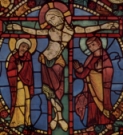Article 6: What is so wrong with a new definition of Civil marriage?
In Canada, an officiating minister
of religion is an officer of the State for
marriage. So those who marry in a
religious ceremony are at the same time
married according to the Law in a Civil marriage.
Civil matrimonial laws existed in Roman times
and changed so as to reflect the prevalent mores.
They not only decided the conditions under which people
could contract a marriage, but also their legal rights and
obligations, between themselves and with the community
at large.
Today, the rules concerning Catholic and
Civil marriages are quite different: a Civil
marriage can end in a divorce; divorcees
can contract a Civil marriage; a non-Catholic
and a Catholic can marry in a Civil ceremony
without any condition but not in a Catholic one.
The Catholic Church recognizes only a marriage
solemnized according to its rites if one
of the spouses is Catholic while it recognizes
all marriages between non-Catholics. The State
recognizes Civil marriages, the ones solemnized
by one to whom it delegated that authority.
The common grounds between Civil and
Catholic marriages include:
(1) the term «marriage», until now defined as the
union between a man and a woman
(2) a limit to how close genetically the spouses can be
(3) the conditions that the two who want to wed must not
already be married, must pledge their oath in front of
witnesses and a representative of the community,
religious and / or civil, after having made known
beforehand their intention to wed.
Canada now wants to define Civil marriage
as the union between two people, thus permitting
two individuals of the same sex to marry, so as to
satisfy the fundamental principle of equality of all
under the Law.
Some Catholics, Evangelicals,
Muslims and Jews are up in arms against such
a change. They assert that the State has no
right to change the meaning of the term
«marriage» which they claim has always
been reserved to the union of one
man and one woman.
This statement is odd as the Qu'ran
clearly permits a man to have three wives and
as Moses, Gedeon, David, Salomon and others
mentionned in the Holy Books of Christians and
Jews had wives galore and concubines to boot!
Jesus' statement that marriage is the
union between a man and a woman, the
only type of legal union found in His society,
was made while arguing that it should not
be dissolved at the whim of the husband.
What He was challenging was the legal right
of husbands to dispose of their wives like the
rest of their property. He was insisting on the
marriage's egalitarian character and the
primacy of this alliance over all others,
which are found in Canadian Matrimonial Law.
He also saw marriage as a lifelong commitment
of both partners, something absent in
Civil marriages.
In Jesus' time, as in most of the history of
humankind, a man took a wife to have children
by her; a woman took a husband to be protected
by him and the children he would «give» her. The
couple needed children so that they could help
provide for them. Sex also gave them relief and
pleasure, but that in itself did not provide them
with any security or help.
Couples were expecting that their children
would work for them as long as they were single
and help them afterwards. As couples of the same
sex would be childless, they would get no help:
marriage between them was pointless.
In today's world, children are not necessary
to a couple's survival through old age: savings,
pension funds, social policies guarantee that.
On the contrary, children are an impediment to
their parents' future welfare as they are expensive.
Of course, children are needed to provide for the
elderly, but in our society the ones who can pay
more get better services than the poorer ones,
even if these gave society the required manpower.
People today need companionship, love,
support more than children. Sex is not basically
for procreation, but a way to show love and to get
relief from the tension of modern life. In this social
environment, marriage between people who
cannot procreate through their union is not to their
detriment: they either do not bring up children,
like many heterosexual couples, or they bring up
children born outside their union.
Many have yet to come to terms with this
social change. They would love to reverse
it, to go back to Jesus' society. Their
insistence that children must be brought
forth like before regardless of their cost
denies that children are now liabilities
more than assets; that countless young
children died when their parents either
did not or could not look after them; that
children's rights, among them the ones'
preventing them from working, the obligation
to send them to school, make them unprofitable
to their parents.
Canada recognizes the various religions'
rights to set their own rules on what their
marriage is, who can partake of it and how
it is to be solemnized as the Law states that
no minister of religion can be forced to marry
people against his religion.The various religious
groups should be just as understanding and
recognize that Civil authorities have the right to
make Civil marriage a reflection of their citizens'
vision of what it is and what it is for, what
fairness is and how it must be applied.
Memorial of St Mary Magdalen, July 22 th, 2004
To Top
To Next Article
Solemnity of the Most Holy Trinity, June 6th, 2004
© 2004 Jacques Beaulieu - property of Jacques Beaulieu - All rights reserved:
Any text on this website can be freely copied if then freely distributed
«freely ye have
received, freely give.» (Matthew 10:8b)
Comment via e-mail to the author
